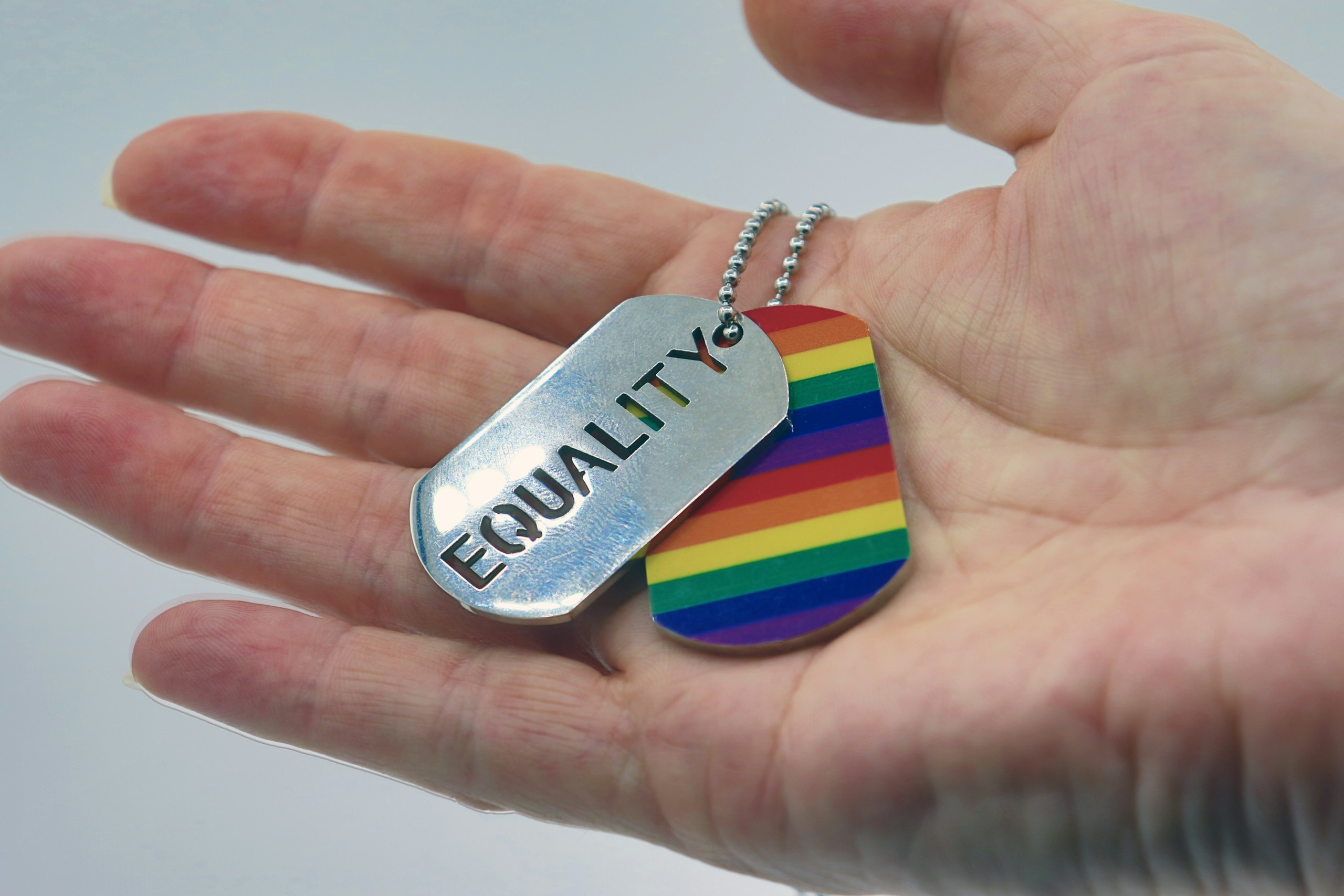Since the election, I’ve found that I’ve had to have conversations with my kids that I never wanted to have. I have both a cis son and a trans daughter, and the conversations for the two of them are both similar and different. As parents, guardians, or caregivers, it might be hard to not feel responsible for our kiddos mental well being in a time of such scary uncertainty. Talking to your kids about this stuff is a daunting task. I have some suggestions that I hope are helpful for you and your family as you navigate this next political era.
Talking to your kids might look different, depending on who your child is, what their needs might be, how old they are, and where in the country you might live. No matter the answers to any of these questions, it’s always wise to get yourself grounded first so that you know clearly what YOU are bringing into the conversation. Here’s a quick list of questions that might be handy to ask yourself before talking to your kids:
What am I feeling right now?
Am I carrying fears/emotions that I don’t want to put on them?
What’s the urgency level of what I’m feeling?
What are my goals in talking to my kids?

But just because we get the urgency in check doesn’t mean that our emotions might not feel big. How do we protect against projecting our fears onto our kids? The first thing we can do is to change our reason for talking to them in the first place. It’s very easy to first think: “they need to know that _________,” or “they need to understand that ________,” Please know that those are parental thoughts and fears, not theirs.
It’s usually helpful to change the idea from talking to your kids to listening to your kids. Before you say anything, check in with them. Get the landscape of their experience and understanding. As parents or caregivers, if we can understand their needs we’ll do a much better job of serving their needs. If we put our emotions and/or urgency on them, then truly, we’re asking them to serve our needs. We as adults have other resources for that (friends! coaching! therapy!).
For very young children it’s most likely that they are blissfully unaware of the current political climate. Wonderful! They deserve that gift and they certainly do not need to carry the weight of Washington DC on their shoulders. But they might experience a different energy in their school or daycare, depending on their situation. It’s still possible to check in with them about their daily life experience.
Listening to small children might just look like play. Get down on the floor with them and build blocks. Or at the park, push them on the swing. Whatever activity you’re sharing, get well into it, and then ask an open-ended question that allows them to chatter freely. Keep the question broad and see what they say. You can even make a game out of it. “Is there anything your friends do that makes you laugh? Is there anything they do that makes you mad?” or you can ask the rose and thorn question: “what was one thing about your day that felt special and good, like a rose?” and then, “what was one part that felt difficult, like the thorn on a rose?”
Let them chit chat, and just soak it up. You don’t have to try to solve their problem (unless they ask), but you certainly can add encouraging messaging like “wow, you were brave to try that!” or “gee, I’ll bet that felt hard.” Really, all you’re doing is absorbing their information and validating their experience. Hopefully, by doing this, you’re getting more information to gauge how your kiddo is doing.
If your child is a tween or teen, active listening is especially important. Why? Kids live in a world where they are being talked to, lectured, or instructed almost constantly. To be heard, really heard, is a profound experience for anyone, but it’s especially profound for people who don’t get to experience it very often. We as parents love to explain things to our kids (and isn’t it frustrating when their eyes glaze over?), but the most significant changes occur when we stop explaining and start listening. In talking to your older kids about the political vibe they might be experiencing, again, it’s helpful to start with an open-ended question. “Are you guys talking about the election at school?” or “what do you make of all this political stuff we’re hearing so much about?” If they clam up, you might have to wait a while. But if they’re willing to share, here’s how a quick primer on active listening:
- When your child (or anyone) is telling you something, focus on it and check your inner chatter. No interrupting, even for clarification, until they’ve said what they needed to say.
- When the other person is done, reflect back what you heard, in your own words. “I think you’re saying _________”
- Then double check and ask for confirmation if what you reflected back is accurate. “Do I have that right?”
- Give them a chance to explain where you might have it wrong.
- After that, see if there’s an opportunity for empathetic recognition. “That sounds really hard,” or “that seems like it would have been a struggle for anyone.” No judgment statements here, please!
- Ask clarifying questions if they seem open to it. “I don’t think I understand what you mean when you say _________. Can you clarify that for me?”
If you get this far with them, you’re doing great! If you don’t, that’s ok too. Talking to your kids isn’t a one time shot. There is usually a LOT of circling back and checking in when the timing is right. Hang in there with the process!
With an older child, you can ask them outright: “is this something I can help you with?” or “What would feel supportive for you in this situation?” They might really want help, or they might just appreciate the opportunity to talk. It’s often helpful to just be really direct with this question and then accept their answer (as you continue to keep an eye on whatever challenges they face).
No matter how far you may or may not get in this process, here’s another bit of advice: your primary role and job in discussing politics with your kid is this: let them know they are loved exactly as they are, remind them of all the people who are there supporting them, and that you as their parent will never stop being their protector and ally. They do not have to feel alone. They are loved as they are. If nothing else, this message is the most important message they can hear from you. Your unconditional love is the most powerful gift you can give, as is your willingness to stand up for them.
There’s so much more to talk about when it comes to talking with your kids. Blog posts just are not sufficient, and I have no doubt that you have more thoughts or questions that are about your situation and your child specifically. If this is the case, please do not hesitate to reach out. The beautiful thing about coaching with me is that it is completely customized to your needs and your situation. You may very well know exactly what you need, or you might need to talk it through a bit to find your clarity. I’m here to accommodate either of those circumstances.
Please don’t hesitate to be in touch about how I might be able to help. Email me at [email protected] or schedule a complimentary consultation so that we can chat about what you might be looking for. You can also find me at Nurture Life Coaching. No matter how you find me,. I’m here to support you through this uncertainty and any other.
You’re not alone, either.



